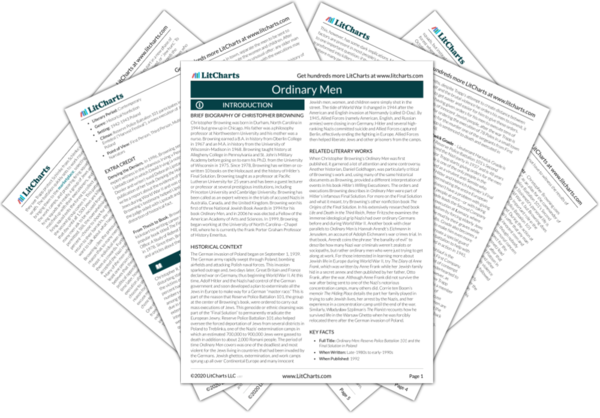Browning’s insistence that mass murder became normal life for many Nazi perpetrators, who were themselves everyday people following orders at work, echoes Hannah Arendt’s famous book
Eichmann in Jerusalem, which chronicled Nazi leader Adolf Eichmann’s war crimes trial. Arendt’s major observation—which was incredibly controversial at the time—was about the “banality of evil,” or her perception that Eichmann was not a sociopath or a devoted ideologue, but in fact a mediocre man who didn’t really think about what he was doing beyond his commonplace desire to get promoted at work. Browning is clearly in agreement with Arendt’s analysis, as he is interested in how banal motives can lead ordinary people to commit monstrous acts. He acknowledges, however, that emphasizing the humanity of mass murderers could have an effect opposite of what he intends: engendering sympathy and minimizing the evil of their crimes. In justifying his approach, Browning makes an important differentiation between sympathy that leads to forgiveness and sympathy that leads to understanding. He is not seeking to forgive these men, but rather to understand their actions and motivations, which is important because it helps readers to understand what made the Holocaust possible (knowledge that might help prevent similar atrocities in the future).
